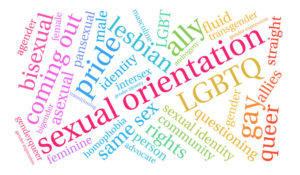Discrimination Based on Sexual Orientation

In February 2019, the Missouri Supreme Court, in Lampley v. Missouri Commission on Human Rights, held that discrimination based on sexual orientation is prohibited under Missouri’s discrimination laws. (The courts actually refer to it as sexual stereotyping.)
The Complaint
Harold Lampley and Rene Frost worked for Missouri’s Department of Social Services. Lampley is gay. At work he did not conform to the stereotypical norms of how a male should appear and behave. Lampley complained that he was harassed because of his appearance and behavior and that he was treated differently from males whose appearance and behavior conformed to stereotypical norms. Frost was a co-worker and friend of Lampley. She complained that she was likewise harassed and treated differently because of her association with Lampley.
Both Lampley and Frost filed complaints of discrimination with the Missouri Commission on Human Rights (MCHR). The MCHR closed its investigation, claiming that neither sexual orientation nor associating with someone who is gay is protected under Missouri’s Human Rights Act (MHRA). Lampley and Frost sued the MCHR, and the trial court found in favor of the MCHR. Lampley and Frost appealed, and the Missouri Supreme Court reversed the trial court’s judgment, holding that sexual stereotyping may indicate discrimination.
Sexual Stereotyping
The Missouri Supreme Court cited U.S. Supreme Court case Price Waterhouse v. Hopkins (1989) in support of its reversal. In that case, the U.S. Supreme Court found that a female employee was denied partnership after partners referred to her as too macho, and said that she was in need of a course in charm school, needed to walk more femininely, dress more femininely, wear make-up, have her hair styled, and wear jewelry. The U.S. Supreme Court said, “[W]e are beyond the day when an employer could evaluate employees by assuming or insisting that they matched the stereotype associated with their group”.
The Missouri Supreme Court also cited a U.S. Second Circuit Court case holding that feminine gay men can pursue a gender stereotyping claim under federal law, just as can a masculine lesbian. Following federal precedent, the Missouri Supreme Court held that “sexual stereotyping during employment is an unlawful employment practice.” The court further held that “an employee who suffers an adverse employment decision based on sex-based stereotypical attitudes of how a member of the employee’s sex should act can support an inference of unlawful sex discrimination.”
Discrimination Based on Sexual Orientation
It is important to understand that courts distinguish between sexual orientation and sexual stereotyping. Although a fine line, sexual orientation alone is irrelevant. Rather, the discrimination occurs when an adverse employment action is taken because an employee fails to conform to the stereotype of his or her gender.
This article is for general informational purposes only, and it is not intended as legal advice. Sewell Law provides experienced and professional litigation services. Please contact Michael Sewell at (314) 942-3232 or at michael@sewelllaw.net to discuss your legal matter.
The choice of a lawyer is an important decision and should not be based solely upon advertisements.
© 2019 Sewell Law, LC


